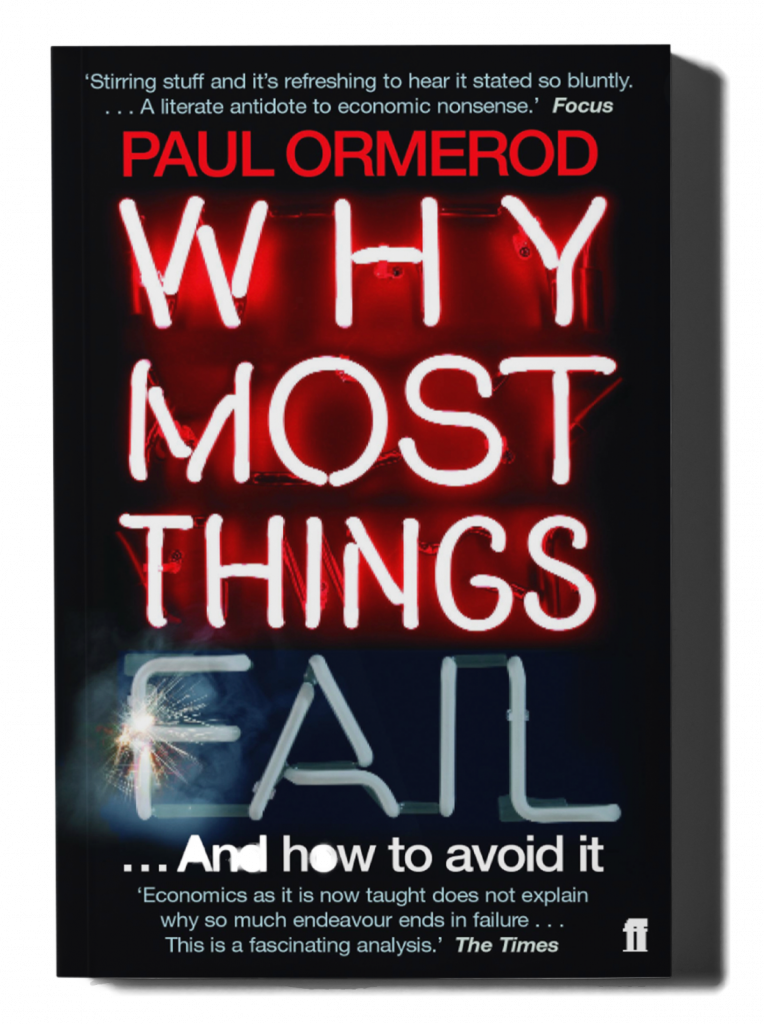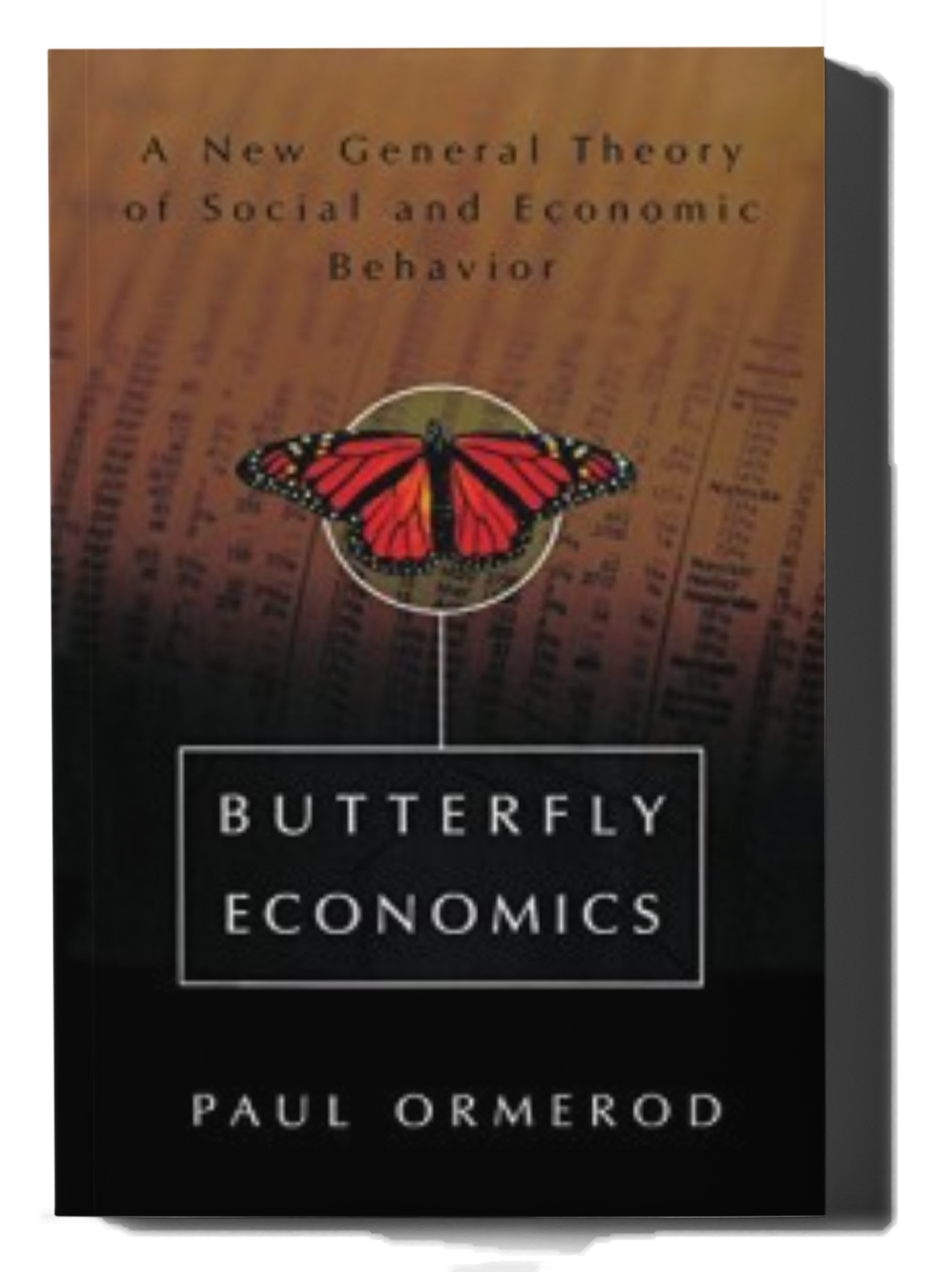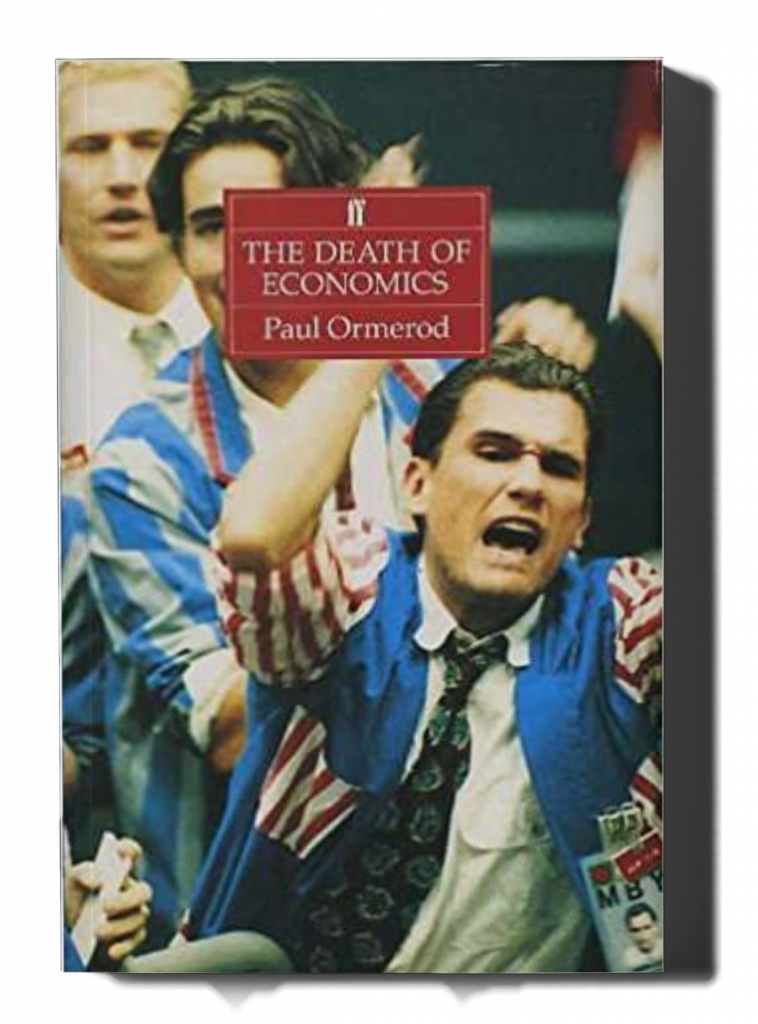
Paul Ormerod
Economist, Author, Entrepreneur
I am a Visiting Professor in the Department of Computer Science at University College, London (UCL).
I am a Fellow of the British Academy for the Social Sciences and in 2009 I was awarded an honorary Doctor of Science degree by the University of Durham for the ‘distinction of his contributions to the discipline of economics’.
I write a weekly opinion column on economics and related topics for City AM, a newspaper aimed at workers in Central London.
Since May 2020 I have been Chairman of the Rochdale Development Agency (RDA). The RDA owned company responsible for economic development in the Metropolitan Borough of Rochdale, which is in Greater Manchester.
I am a partner in Volterra Partners which I set up in 1998, and also a founder and director of Algorithmic Economics.
Paul Ormerod
Economist, Author, Entrepreneur
I am a Visiting Professor in the Department of Computer Science at University College, London (UCL).
I am a Fellow of the British Academy for the Social Sciences and in 2009 I was awarded an honorary Doctor of Science degree by the University of Durham for the ‘distinction of his contributions to the discipline of economics’.
I write a weekly opinion column on economics and related topics for City AM, a newspaper aimed at workers in Central London.
Since May 2020 I have been Chairman of the Rochdale Development Agency (RDA). The RDA owned company responsible for economic development in the Metropolitan Borough of Rochdale, which is in Greater Manchester.
I am a partner in Volterra Partners which I set up in 1998, and also a founder and director of Algorithmic Economics.
Paul Ormerod
Economist, Author, Entrepreneur
I am a Visiting Professor in the Department of Computer Science at University College, London (UCL).
I am a Fellow of the British Academy for the Social Sciences and in 2009 I was awarded an honorary Doctor of Science degree by the University of Durham for the ‘distinction of his contributions to the discipline of economics’.
I write a weekly opinion column on economics and related topics for City AM, a newspaper aimed at workers in Central London.
Since May 2020 I have been Chairman of the Rochdale Development Agency (RDA). The RDA owned company responsible for economic development in the Metropolitan Borough of Rochdale, which is in Greater Manchester.
I am a partner in Volterra Partners which I set up in 1998, and also a founder and director of Algorithmic Economics.





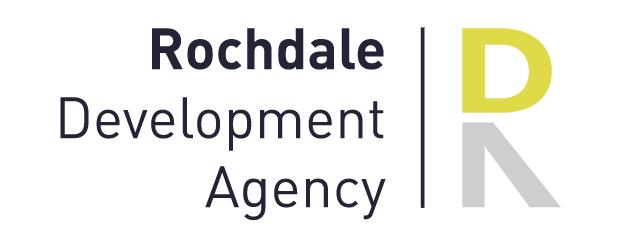
Ormerod is a paragon of innovative economic thinking
FINANCIAL TIMES
Ormerod is a paragon of innovative economic thinking
FINANCIAL TIMES
My Books
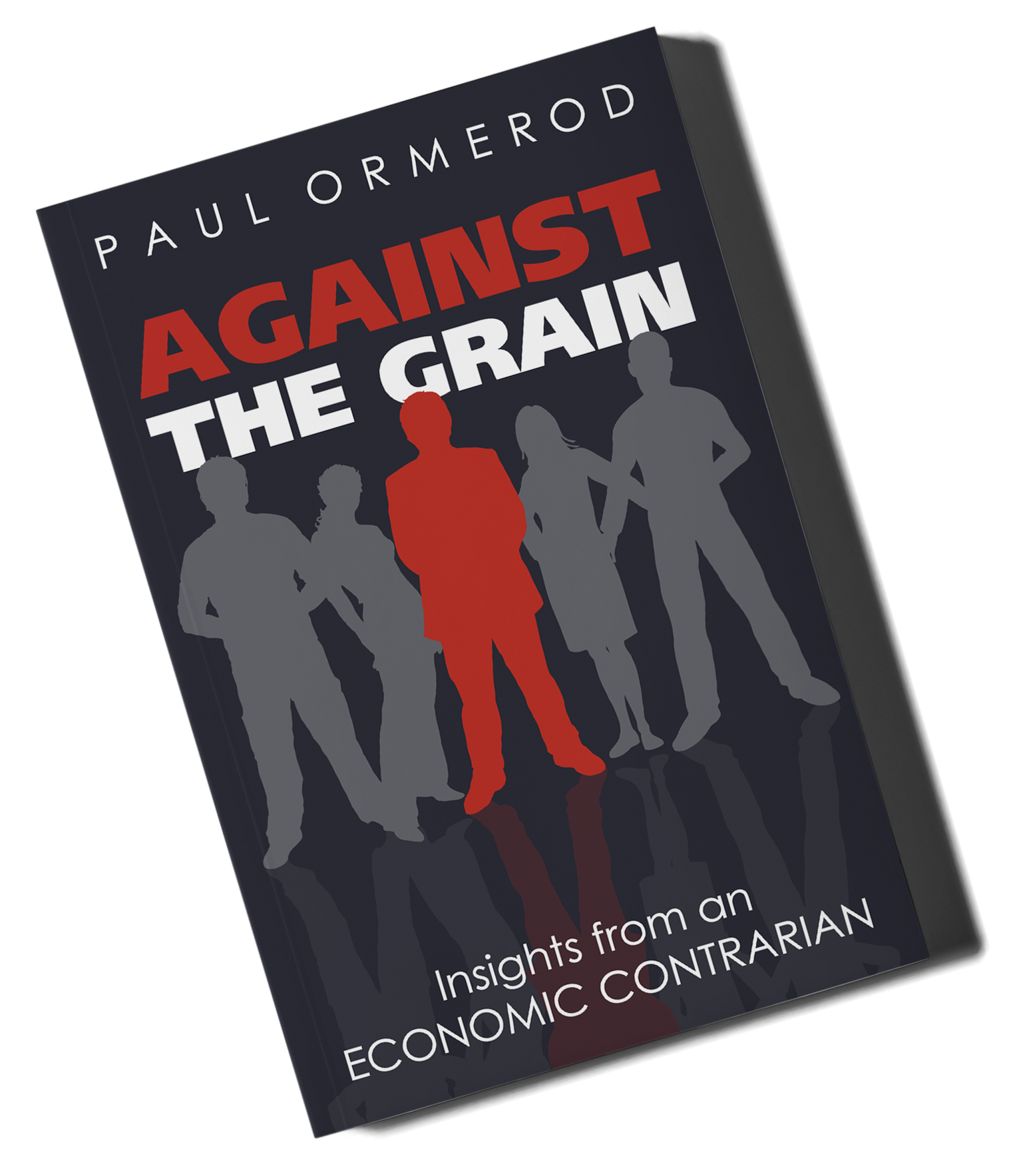
Against the Grain: Insights from an Economic Contrarian
My latest book is Against the Grain: Insights from an Economic Contrarian, published by the Institute for Economic Affairs in conjunction with City AM.
It is an organised selection of my City AM pieces. In the confines of 500 words each week, I try to shed light on a contemporary issue in political economy.
Turning a blind eye: Have policymakers ignored economists during the pandemic?
In December 2020 I published a monograph where I explain how many aspects of micro-economics – how people behave – give powerful and practical insights into the Covid crisis
Positive Linking: How Networks and Incentives Can Revolutionise the World
The Covid crisis has put networks in the spotlight. Back in 2012, I published Positive Linking: How Networks and Incentives Can Revolutionise the World. The book explores the limits of conventional economics and why it needs to embrace the power of the networks – through ‘positive linking’. Read the preface and first two chapters here.
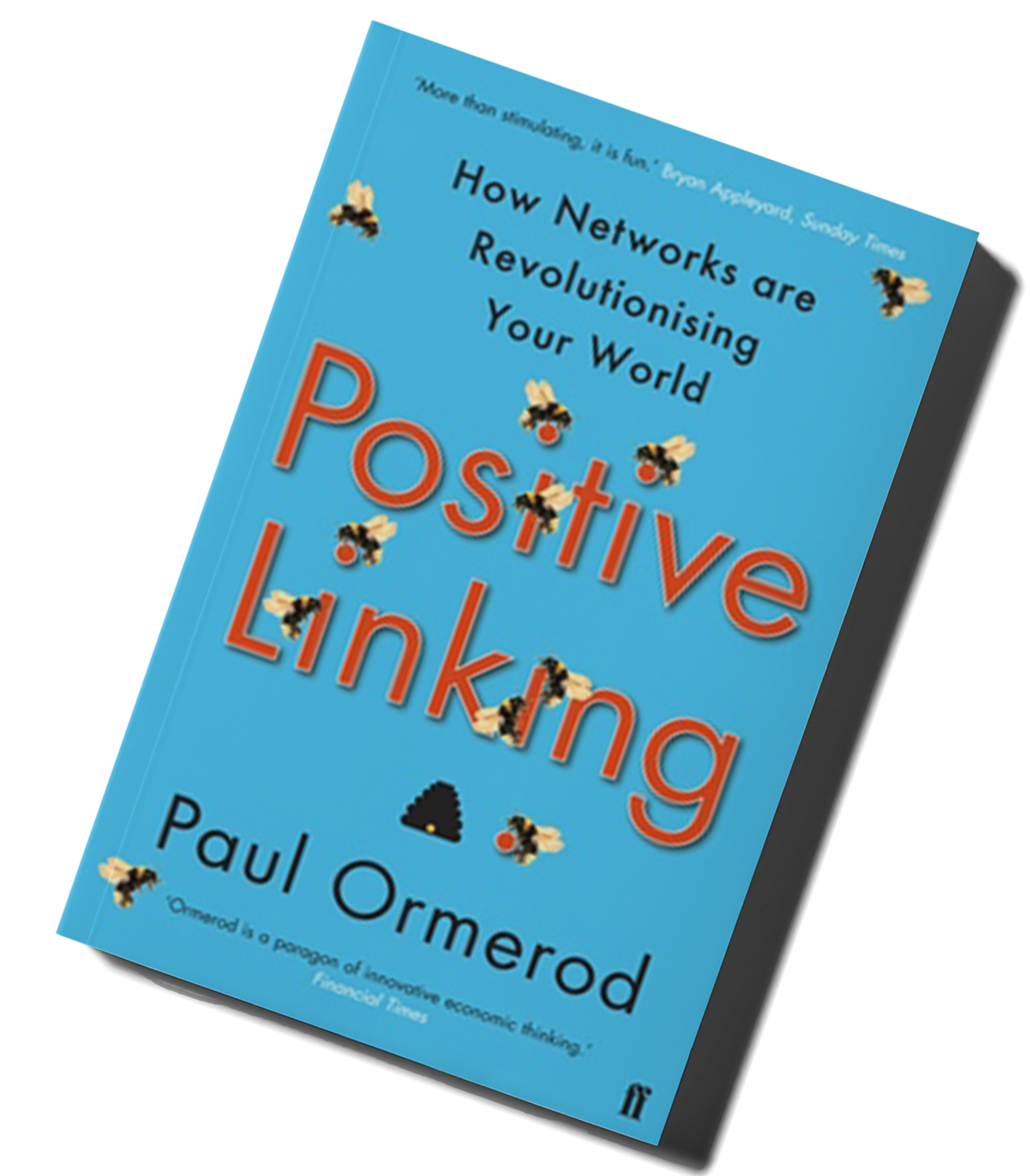
I have also authored three other best-selling books. The Death of Economics, an attack on a particular form of economics, in 1994 and Butterfly Economics in 1998 have both been published in more than 10 languages. My third book, Why Most Things Fail, was named a US Business Book of the Year for 2006 by BusinessWeek magazine.
I wrote the Death of Economics in 1993. But a lot of what I wrote then is relevant to the current crisis. Of course things have moved on, but here is the preface, chapter 1 and a chapter on the pitfalls of economic forecasting.
My Blog
I’m sorry Ed Miliband, your big green energy plan is all fantasy
Ed Miliband’s green vision is admirable, but the history of energy consumption shows it is all but a fantasy, writes Paul Ormerod The energy secretary,
Yes, AI will wipe out some jobs. But this is the story of progress
AI will inevitably make some jobs redundant, but the benefits to society are far worth it, writes Paul Ormerod The world of AI has gone
Starmer must remember humans respond to incentives, not rules
Rules are important to any civilised society, but Starmer has forgotten that humans respond far better to incentives, writes Paul Ormerod. As the Prime Minister,
My Research Interests
Networks
How people, firms, things are connected to each other, and how different ways in which they are connected have different implications.


Complex Systems
How the properties of systems as a whole emerge from the interactions of their component parts. These are systems in which the whole is more than the sum of the parts.
Rule of thumb
How the properties of systems as a whole emerge from the interactions of their component parts. These are systems in which the whole is more than the sum of the parts.


Big data
A combination of Big Data and new developments in machine learning algorithm open up exciting possibilities for obtaining a better understanding of how the social and economic worlds work
These topics are of course related. They draw on work from a wide range of disciplines, such as biology, economics, psychology, maths and statistical physics. Here is an article in Nature on this general topic.

